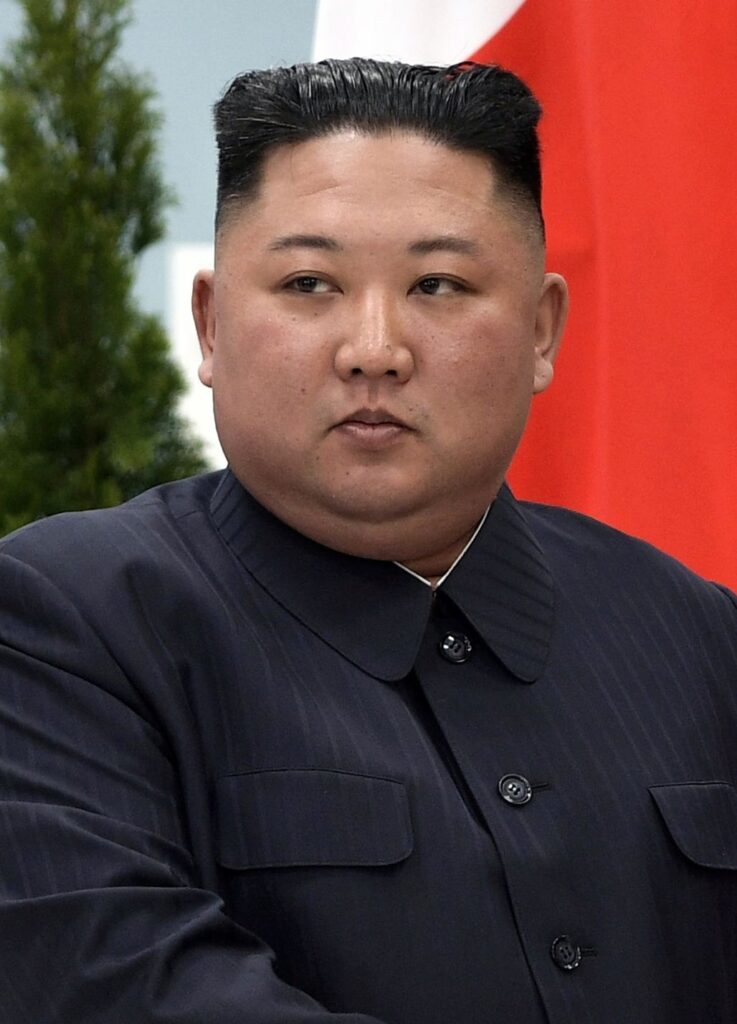North Korean leader Kim Jong Un has reportedly issued a secret directive instructing provincial authorities to curb the rising number of suicides across the country, which he has described as an “act of treason against socialism.” The order, according to sources cited by Radio Free Asia (RFA), was circulated in emergency meetings with provincial party committee leaders after alarming internal data revealed a sharp increase in suicide cases.
Government insiders told RFA that Kim’s decision followed reports from the South Korean National Intelligence Service (NIS), which indicated that suicides in North Korea had surged by approximately 40% compared to the previous year. The troubling rise is believed to be linked to worsening living conditions, severe food shortages, and ongoing economic isolation.
“There are a lot of internal unrest factors in North Korea due to people’s hardships,” one source familiar with the discussions said, adding that the regime sees suicide not just as a social problem but as a political and ideological threat.

Kim reportedly ordered all local government bodies, police, and neighborhood watch units (known as inminban) to intensify surveillance and identify individuals showing signs of distress. The directive instructs officials to prevent suicides “by any means necessary,” and to treat such deaths as acts of defiance against the state’s socialist values.
The confidential order underscores the regime’s anxiety over the growing psychological toll of its economic crisis. Years of international sanctions, compounded by border closures during the COVID-19 pandemic, have crippled trade and left millions struggling with chronic food insecurity.
Despite the regime’s efforts to project stability, insiders say morale across the country has deteriorated sharply. Entire communities are facing extreme shortages of basic goods, while rural areas continue to experience famine-like conditions. Citizens unable to meet government quotas or feed their families often face punishment, further deepening despair.
A provincial official in North Hamgyong Province told RFA that local authorities had been warned they would be held personally responsible if suicide cases occurred in their jurisdictions. “The order was strict,” the official said. “It stated that those who fail to stop suicides would be considered to have neglected ideological education and could face punishment themselves.”
In response, local committees have reportedly begun holding public education sessions emphasizing loyalty to the ruling Workers’ Party and gratitude to the Supreme Leader. Propaganda campaigns are being intensified across factories, farms, and residential areas, portraying suicide as a betrayal of the socialist collective spirit.

However, sources say such ideological lectures have done little to address the root causes of despair. Many citizens, already burdened by hunger and poverty, find the government’s response detached from reality. “People are starving, yet the authorities only care about maintaining control,” one resident said.
Experts on North Korean affairs note that suicide is rarely discussed publicly within the country due to the heavy stigma attached to it. However, defectors and external monitoring groups have long reported that suicides, especially among farmers, soldiers, and laborers, have been quietly rising in recent years.
Dr. Kim Young-soo, a North Korea analyst at the Korea Institute for National Unification in Seoul, said the regime’s approach reveals deep insecurity. “Labeling suicide as treason shows how fragile the regime feels about losing control over its population’s morale,” he explained. “Instead of providing social welfare or psychological support, Pyongyang treats despair as political disloyalty.”
The situation reflects broader systemic failures. With little access to mental health care and strict government censorship, North Koreans often have no safe outlets for emotional distress. Religious groups and independent counseling services, common in other countries, are banned.
The South Korean National Intelligence Service has warned that North Korea’s humanitarian crisis could deepen further if Pyongyang continues prioritizing military spending over public welfare. Earlier this year, satellite imagery revealed that the regime expanded its weapons testing sites even as state media acknowledged worsening grain shortages.
Analysts believe Kim’s secret order is both a moral and political maneuver — an attempt to suppress a symptom of growing unrest without addressing its underlying causes. “It’s a control tactic,” said Rachel Min, a senior researcher at Human Rights Watch Asia. “The government fears that widespread hopelessness could erode loyalty to the regime.”
The directive marks a rare acknowledgment by the North Korean leadership of internal instability. While official state media have not mentioned the issue publicly, sources suggest the regime’s internal documents describe the situation as “a serious ideological threat to national unity.”
Reports from border regions indicate that surveillance and punishment have intensified since the order’s issuance. Some local officials have reportedly organized “solidarity patrols” to monitor families that recently experienced deaths or severe hardship.
Despite the clampdown, human rights observers say North Korea’s suicide crisis highlights the need for international engagement and humanitarian aid. “The suffering in North Korea is not only political but profoundly human,” said Min. “People are dying from hopelessness, and secrecy only deepens that tragedy.”
As Kim Jong Un continues to tighten ideological control, many experts warn that without meaningful economic reform or social relief, despair will persist — no matter how harsh the penalties for expressing it.
North Korea and Russia join hands; this comes after Putin’s visit to North Korea

